MercoPress. South Atlantic News Agency
Stories for 2020
-
Saturday, August 1st 2020 - 06:50 UTC
Falklands lawmakers analyzes prospects for the tourism sector
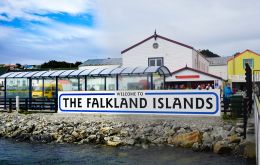
Support for the Falklands' tourism sector in the face of Covid-19 was an issue closely examined in the Legislative Assembly this week. Questions were put to the House by Member of Legislative Assembly MLA Roger Spink and answered by Member of Legislative Assembly Mark Pollard.
-
Saturday, August 1st 2020 - 06:27 UTC
Brazil expects a record soybean harvest of 130 million tons

Brazil’s soybean production in 2020/21 is expected to jump to a record 130 million tons, with good prices driving farmers to increase planting in pasture areas after a drought reduced the harvest in the south of the country in 2019/20.
-
Saturday, August 1st 2020 - 06:11 UTC
Ecuador extends deadline for negotiations with bondholders

Ecuador will extend the deadline for creditors to vote on its US$ 17.4 billion debt restructuring plan to Monday following a lawsuit by a small group of bondholders, the finance ministry said on Thursday.
-
Saturday, August 1st 2020 - 06:07 UTC
Colombia planning private sector workers to tap pension savings
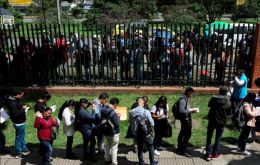
Colombia is the latest Latin American country considering a plan to let workers tap private pension savings, a move intended to soften the slump in consumer spending but which risks worsening some of the world’s deepest stock market slumps.
-
Saturday, August 1st 2020 - 06:05 UTC
Mexican economy needs two years to reach pre-pandemic levels
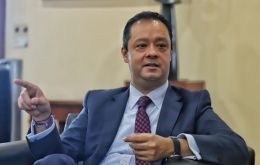
A full recovery of the Mexican economy to pre-pandemic levels could be reached in one to two years so long as no new coronavirus outbreaks strike, a senior official said
-
Friday, July 31st 2020 - 22:02 UTC
Falkands: Successful repatriation flight to Punta Arenas
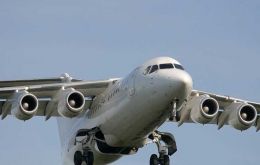
The repatriation flight organised by the Falkland Islands Government arrived this morning, 31 July 2020, from Punta Arenas, Chile returning two Falkland Island residents to the Islands, and departing with 30 passengers on-board.
-
Friday, July 31st 2020 - 10:50 UTC
Brazil reopens international air travel to foreign tourists
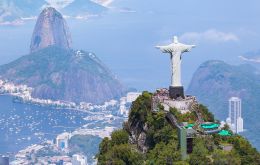
Brazil has reopened international air travel to foreign tourists, which had been banned since March, even as its coronavirus outbreak ranks as the world's second-worst.
-
Friday, July 31st 2020 - 10:49 UTC
Leading Republicans reject Trump suggestion to delay November presidential election

Top U.S. Republican lawmakers on Thursday rejected President Donald Trump’s suggestion to delay the Nov. 3 presidential election, saying the contest should be held as planned even as they mostly backed his concerns about mail-in voting.
-
Friday, July 31st 2020 - 10:35 UTC
Brazilian First Lady tests positive for Covid-19
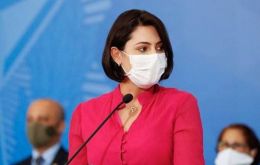
Brazilian President Jair Bolsonaro's wife and one of his ministers have tested positive for COVID-19, according to an official statement on Thursday, as the spread of the novel coronavirus showed no signs of slowing in the country with the world's second-worst outbreak after the United States.
-
Friday, July 31st 2020 - 10:32 UTC
WHO calls on countries to lift international travel measures

Countries should gradually lift international travel measures based on a thorough risk assessment and must prioritize essential travel for emergencies, the World Health Organization (WHO) said on Thursday.
